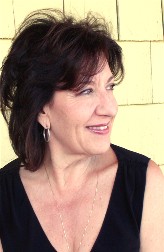Interview with Barbara J. Brighton, M.A., M.F.C.T.
Ms. Barbara J. Brighton, M.A., M.F.C.T. is a Psychotherapist specializing in Individual and Group Psychotherapy, Adults and Adolescents as well as Psycho-Oncology. She has graduated from Cal State Northridge with a BA in Psychology and has earned her Master’s degree in Psychology from Antioch University. She is in private practice for 29 years. Barbara Brighton’s professional accomplishments have earned her ‘excellent reputation. She has achieved acclaim while working with many cancer patients and their families helping them to cope with the disease and successfully overcome it.
Barbara J. Brighton: Would you like me to start by explaining what psychotherapy is?
Editor: It would help!
Barbara J. Brighton: Psychotherapy is a place where you can talk about your most personal, private thoughts, feelings and life experiences. As the therapist I provide a safe and comfortable environment, listen without judgment, analyze and interpret the information and ultimately assist and guide you in a way that allows you to put together the pieces of the puzzle of your life.
As children, we get information from our family and environment that determines the way we look at ourselves and the world and what our expectations are. Ideally, children get positive messages about themselves, feel loved, know how to trust their environment, and all those good things. Unfortunately, that isn’t always the case and the negative and distorted messages and experiences that occur stay with a person into adulthood. Through the psychotherapeutic process, we begin to look at the messages and experiences and unravel them. The client develops adult eyes to review and reconsider the way they look at themselves and the world and reevaluate their choices. The therapy can also include learning new coping mechanisms, how to communicate effectively and how to intervene on your own behalf when negative messages come into your head that undermine the success of your life.
Editor: So if I came to therapy with you, it would help me become a more effective adult?
Barbara J. Brighton: I would say that I would work with you to find a healthy adult within yourself. When you open yourself in therapy, many aspects of your life are affected. I use the metaphor that as you go through life you throw things that you don’t want to deal with in a closet and shut the door. You keep throwing things in the closet and eventually it is so full that the door doesn’t want to shut so you have to lean on the door all the time to keep everything from falling out. This can cause stress, anxiety, depression and more. You expend so much energy making sure you keep that door closed that you don’t have anything left for your life. Part of what we do in therapy is to gently and slowly open up that door. We take things out and look at them and decide where they fit in your life. This can be a very painful process, but not as scary as you might think it would be. You can live through it. You find your truth and your humanity and you have the opportunity to have a relationship with yourself that is loving.
Editor: Who can benefit from therapy the most?
Barbara J. Brighton: I think most people can benefit from therapy to different degrees. The more motivated you are to improve the quality of your life, the more you’ll benefit.
Editor: How would I know that I need therapy?
Barbara J. Brighton: Sometimes people come because there is a crisis in their life. Often people come to therapy to talk about their relationships and the problems within those relationships. Although it is reasonable to address those issues, my approach is to focus equally on the relationship you have with yourself. How would you describe that relationship? Is it abusive, loving, critical? Do you honestly look at what is going on in your life? When you heal the relationship you have with yourself, you have a much better chance of having successful relationships with others. When you get to that place it might mean that you will choose to let people go who aren’t supporting your emotional health, and deepen the relationships that enrich your life.
I would also say that it is a good idea to get into therapy if you find that many of your days feel like an effort. When you find that you have no energy and most importantly, when you find that you don’t feel joy in your life and that you don’t look forward to the day.
Editor: Thank you for talking with me and sharing your insights with the visitors of Los Angeles Health Directory, Barbara.
Barbara J. Brighton, M.A., M.F.C.T.
16055 Ventura Blvd., Ste. 1010 in Encino
Phone: (818)905-4692
E-Mail: bjbjazz@earthlink.net

